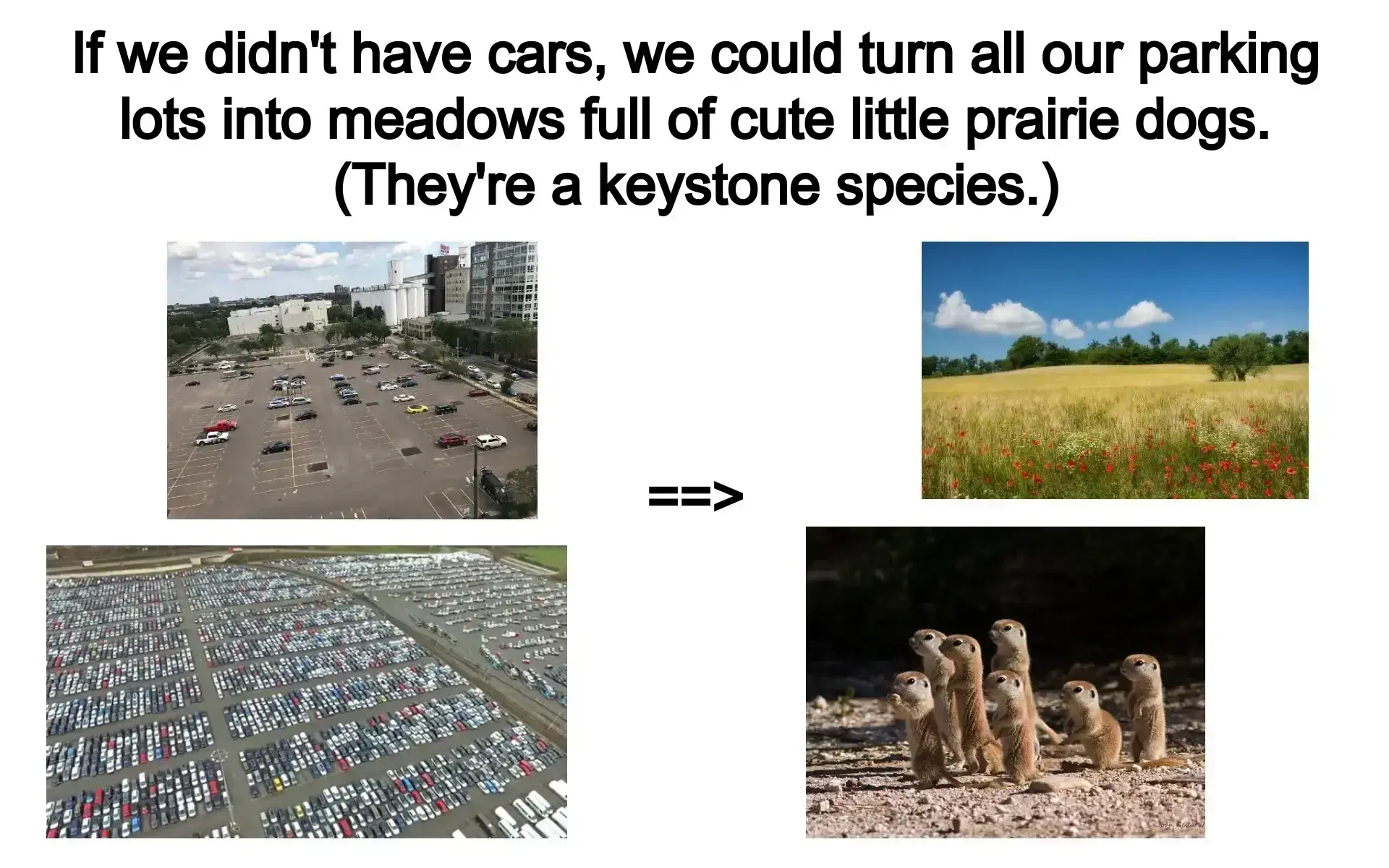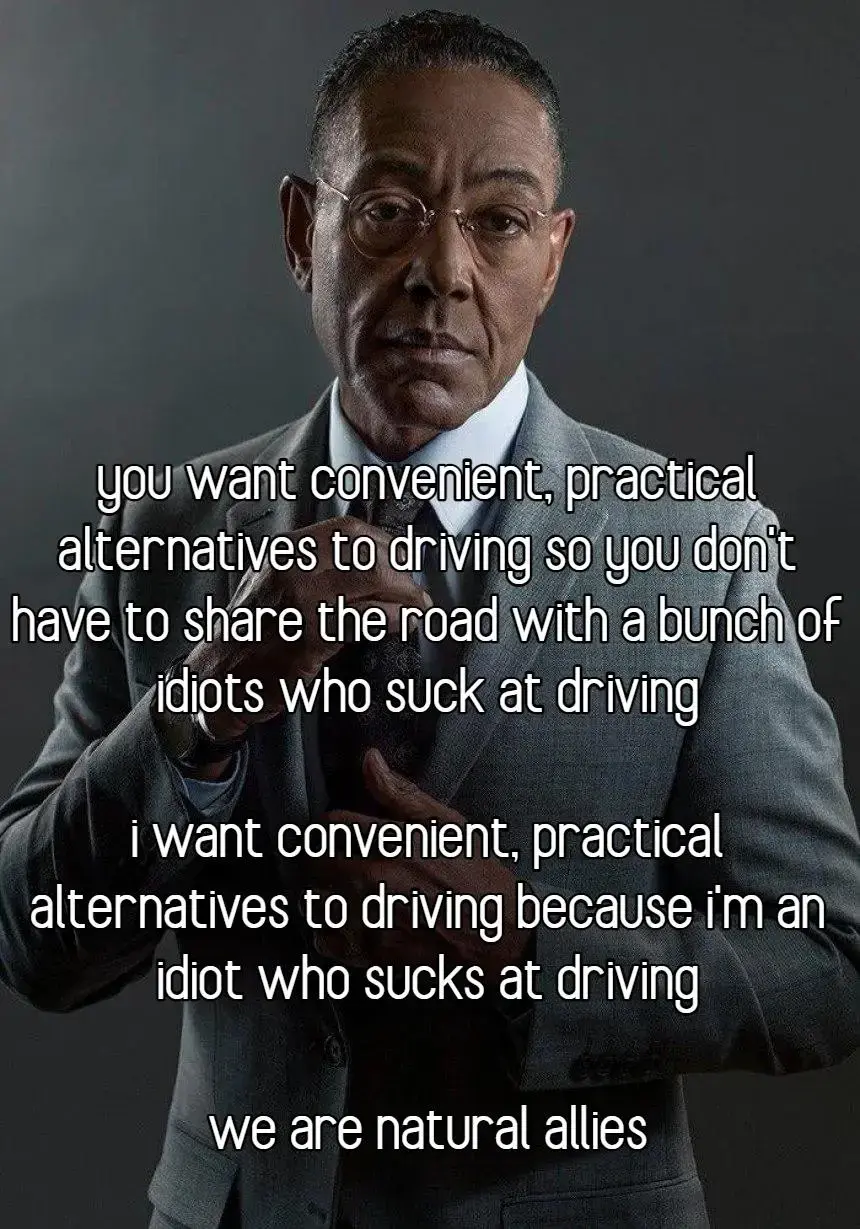For those unfamiliar with Georgism and LVT (land value tax):
Georgism, also called in modern times Geoism,[2][3] and known historically as the single tax movement, is an economic ideology holding that, although people should own the value they produce themselves, the economic rent derived from land—including from all natural resources, the commons, and urban locations—should belong equally to all members of society.[4][5][6] Developed from the writings of American economist and social reformer Henry George, the Georgist paradigm seeks solutions to social and ecological problems, based on principles of land rights and public finance which attempt to integrate economic efficiency with social justice.[7][8]
Georgism is concerned with the distribution of economic rent caused by land ownership, natural monopolies, pollution rights, and control of the commons, including title of ownership for natural resources and other contrived privileges (e.g., intellectual property). Any natural resource which is inherently limited in supply can generate economic rent, but the classical and most significant example of land monopoly involves the extraction of common ground rent from valuable urban locations. Georgists argue that taxing economic rent is efficient, fair, and equitable. The main Georgist policy recommendation is a tax assessed on land value, arguing that revenues from a land value tax (LVT) can be used to reduce or eliminate existing taxes (such as on income, trade, or purchases) that are unfair and inefficient. Some Georgists also advocate for the return of surplus public revenue to the people by means of a basic income or citizen’s dividend.
And although LVT is the most central proposed policy of Georgism, Georgists also advocate for carbon taxes (and other taxes on negative externalities), severance taxes on finite natural resources like oil or minerals, intellectual property (IP) reform, and eliminating barriers to entry. (It should be noted that Georgists want to replace bad/inefficient taxes like sales, income, and property taxes with LVT, externality (aka Pigouvian), and severance taxes.)
As for why LVT? In short, it’s just a really good tax. Progressive, widely regarded by economists as “the perfect tax”, incentivizes efficient use of land, discourages speculation and rent-seeking, economically efficient, and hard to evade. Plus, critically regarding landlords, land value taxes can’t be passed on to tenants, both in economic theory and in observed practice.
In fact, it’s so well-regarded a tax that it’s been referred to as the “perfect tax”, and is supported by economists of all ideological stripes, from free-market libertarians like Milton Friedman — who famously described it as the “least bad tax” — to social democrats and Keynesians like Joseph Stiglitz. It’s simply a really good policy that I don’t think is talked about nearly enough.
Even a quite milquetoast land value tax, such as in the Australian Capital Territory, has been shown to reduce speculation and improve affordability:
It reveals that much of the anticipated future tax obligations appear to have been already capitalised into lower land prices. Additionally, the tax transition may have also deterred speculative buyers from the housing market, adding even further to the recent pattern of low and stable property prices in the Territory. Because of the price effect of the land tax, a typical new home buyer in the Territory will save between $1,000 and $2,200 per year on mortgage repayments.
More resources:
It’s physically impossible to be ‘unreasonably’ angry at parking lots! Reclaim your city’s land, people. You’re all paying for it
This is how I wanna reclaim that land:

Either that or a buttload of housing
Meadows, parks, housing, literally anything besides an asphalt desert
Imagine a grocery store surrounded by a garden full of fresh fruits and vegetables instead of pavement
And stone gardens. I hate those
Sure, modulo you don’t want those meadows where parking lots are now.
A stadium surrounded by meadows is a terrible idea. You want a stadium surrounded by apartments, a subway stop, restaurants, shopping, etc. You want people to reasonably get to the stadium on foot or on bike, using the subway to commute from other parts of the city.
Then, sure, have some prairies around your city as a park with all the space saved by replacing car-centric suburban and exurban sprawl with streetcar suburbs and walkable mixed use urbanism. Or surround it with forest, u-pick apple orchards, or whatever.
What if I’m here because I think most people are too stupid and distracted to drive and want them to have more and better options and far more stringent licensing so they’re out of my way when I’m driving?
Also, I’m an urbanist who wants cities to suck less so we leave rural land alone so I can go out there and be alone.
Well, you would have the “hating suburban sprawl that encroaches endlessly into rural/remote areas” in common with the two bottom panels. But maybe the 5th horseman is people who want dumb and awful drivers off the road?

want them to have more and better options
So, the public transit enjoyer?
Personally, I favor a LVT for financing free public transit…
Personally, I favor a LVT for financing free public transit…
Hell yeah, I wrote a post on reddit about this very topic a while back. I’ll copy it below:
In 1977, Joseph Stiglitz showed that under certain conditions, beneficial investments in public goods will increase aggregate land rents by at least as much as the investments’ cost.[1] This proposition was dubbed the “Henry George theorem”, as it characterizes a situation where Henry George’s ‘single tax’ on land values, is not only efficient, it is also the only tax necessary to finance public expenditures.[2] Henry George had famously advocated for the replacement of all other taxes with a land value tax, arguing that as the location value of land was improved by public works, its economic rent was the most logical source of public revenue.[3] The often cited passage is titled “The unbound Savannah.”
…
Subsequent studies generalized the principle and found that the theorem holds even after relaxing assumptions.[4] Studies indicate that even existing land prices, which are depressed due to the existing burden of taxation on labor and investment, are great enough to replace taxes at all levels of government.[5][6][7]
https://en.wikipedia.org/wiki/Henry_George_theorem
Essentially, the idea is that building things like metro lines and light rail increases neighboring land values. Instead of letting those increased land values be captured by private landholders, we can capture it with a hefty land value tax (which is a terrific tax for a whole host of reasons, particularly for urbanists). And as Nobel laureate Joseph Stiglitz and others have shown, a strong enough LVT is capable of funding that public transit entirely. I.e., no fares, no ticketing, just transit paying for itself via its own increase in nearby land values.
It gets even better when you consider that ticketing and fare collection incurs not-insignificant costs for transit systems. It means more labor, more enforcement, and more construction costs. For example, new underground metro lines are very expensive in large part because tunneling is expensive. If you can dig less by not having to build large rooms for ticketing and turnstiles, you can save money on metro construction. Plus, free transit is great for increasing ridership, and it’s doubly great for low-income folks.
Further, LVT heavily disincentivizes parking lots and low-density development on valuable land, so you’d heavily discourage park-and-rides and heavily encourage transit-oriented development.
Oh, interesting, so it has been widely communicated common-sense for half a century already.
I wonder why all governments seem to ignore those well-known economic ideas that have no downside except for not insanely benefiting the ultra-rich. (In fact, they seem to ignore all of those.)
I wonder why all governments seem to ignore those well-known economic ideas that have no downside except for not insanely benefiting the ultra-rich. (In fact, they seem to ignore all of those.)
I think about this a lot, too. So many of our current problems we know excellent solutions for. After all, millions and millions of experts around the world have studied these problems and have proposed (and often converged upon) solutions. And yet actually implementing them politically is such an uphill battle.
why all governments seem to ignore those well-known economic ideas that have no downside except for not insanely benefiting the ultra-rich
You answered your own question: They don’t insanely benefit the ultra-rich.
If we don’t give the ultra-rich all the money, the economy will suffer, and the only thing everyone in power can agree on is that we need to protect the status quo of the economy at all costs.
I actually hate public transit for the same reason I don’t like cities and suburbs: There’s people there.
Given the choice between public transit and walking I’d take the latter, every time. If I could walk across water I’d do that rather than fly.
Cyclist, but I always wear a helmet. The rest is accurate.
Cyclist / YIMBY dual class. Wear a helmet, hate parking lots, really hate suburbs.
Which one are you?
Yes.
gets unreasonably angry at parking lots
Literally cackling
And then there are YIMBYs with a bike in a train
I’m basically all of these lmao
Maybe, perhaps, someday, I can be all of the above.
At once.
Top two (but with a helmet)
Yimby here and my partner is so done with my shit some days
Duuuude I’m 3 of them!! I just don’t understand money at a grand scale enough to be into one tax system over another. Seems neat the way you explain it but I really don’t fucking understand money like that.
Ha, don’t worry about the LVT and Georgism. A lot of the reasoning gets more technical into economics, but probably the most important thing to know is that LVT is simply a really good tax with very desirable properties (especially from an urbanist/YIMBY/anti-car perspective), and it is widely regarded by economists. You definitely don’t even have to be Georgist to support LVT; the mayor of Detroit, Mike Duggan, is heavily pushing for LVT in Detroit despite not even having heard of Georgism until recently when a journalist with the New York Times pointed it out to him.
But yeah, we’re all anti-car allies here!
My transit maps are not imaginary, they’re aspirational.
I would be all of the above if I could afford one of those fancy, low down bikes with the pedals out front.
I also really like zeppelins and blimps and wish we lived in a sci-fi alternate universe where we had those instead of planes. Or along side planes at very least.
YIMBY
Mostly yimby and public transit enjoyer. I just find a bus or a train to be a much more comfortable way to reach my destination than a bike (although I do love biking too) or a car








